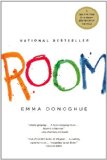Summary | Excerpt | Reading Guide | Reviews | Beyond the Book | Read-Alikes | Genres & Themes | Author Bio

This article relates to I Let You Go
Clare Mackintosh's debut novel, I Let You Go, is inspired by an event – a hit-and-run accident – that happened early in the author's career as a police officer. Embarking on a work of fiction by using an actual event as inspiration is a common occurrence in books, movies and television. Note that this story is "inspired by" and not "based upon" a true-life event. There are distinct differences.
 For example how often does someone read a snippet of a newspaper story, see a blurb on a news website, or even overhear a conversation on a bus or plane about something that leaves several open ended questions? Frequently fiction-writing teachers will throw such a news article out to their class and assign writing a story that the piece inspires. Authors are drawn to these kinds of stories too, and they will often grab them and ask questions: Who could do such a thing? Why would anybody want to be in this situation? How can someone become so deeply involved? Then they weave their answers into a plot. Occasionally, as in Ms Mackintosh's case, the imagined story is more interesting because of its basis in reality.
For example how often does someone read a snippet of a newspaper story, see a blurb on a news website, or even overhear a conversation on a bus or plane about something that leaves several open ended questions? Frequently fiction-writing teachers will throw such a news article out to their class and assign writing a story that the piece inspires. Authors are drawn to these kinds of stories too, and they will often grab them and ask questions: Who could do such a thing? Why would anybody want to be in this situation? How can someone become so deeply involved? Then they weave their answers into a plot. Occasionally, as in Ms Mackintosh's case, the imagined story is more interesting because of its basis in reality.
 If a fiction is inspired by real events, then the names of those involved, the location, etc., can be altered to the point where the initial details are virtually unidentifiable. Then permissions and releases are seldom necessary unless even the most general description of the people involved can be construed as an invasion of their privacy. Because the barest general outlines of the event and individuals are used, then they truly are merely inspiration for a flight of fiction. And the author may bend and amend facts to suit the plot of the story.
If a fiction is inspired by real events, then the names of those involved, the location, etc., can be altered to the point where the initial details are virtually unidentifiable. Then permissions and releases are seldom necessary unless even the most general description of the people involved can be construed as an invasion of their privacy. Because the barest general outlines of the event and individuals are used, then they truly are merely inspiration for a flight of fiction. And the author may bend and amend facts to suit the plot of the story.
 However, if an author decides to write a fictionalized work that does resemble the actual incident – that is, if they reproduce such things as the true identities of those involved, the location, circumstances, background information and so on, then there are clear legalities that must be followed depending on the situation. They may take license with details, in such a case, but should respect the integrity of all involved in the event.
However, if an author decides to write a fictionalized work that does resemble the actual incident – that is, if they reproduce such things as the true identities of those involved, the location, circumstances, background information and so on, then there are clear legalities that must be followed depending on the situation. They may take license with details, in such a case, but should respect the integrity of all involved in the event.
 A surprising number of popular novels have been inspired by true-life incidents. For example, Room is inspired by Elizabeth Fritzl's horrific captivity story which came to light in 2008, just two years before Emma Donoghue wrote her novel. John Green's heartbreaking YA novel, The Fault in Our Stars, is based on a young woman with thyroid cancer who Green met at a conference. Serial murderer and body snatcher Edward Gein inspired Robert Bloch to create Norman Bates in his bestselling novel Psycho. And Murder on the Orient Express by Agatha Christie was inspired by the real kidnapping and murder of Charles Lindbergh's son two years before the book was published. The list goes on and on.
A surprising number of popular novels have been inspired by true-life incidents. For example, Room is inspired by Elizabeth Fritzl's horrific captivity story which came to light in 2008, just two years before Emma Donoghue wrote her novel. John Green's heartbreaking YA novel, The Fault in Our Stars, is based on a young woman with thyroid cancer who Green met at a conference. Serial murderer and body snatcher Edward Gein inspired Robert Bloch to create Norman Bates in his bestselling novel Psycho. And Murder on the Orient Express by Agatha Christie was inspired by the real kidnapping and murder of Charles Lindbergh's son two years before the book was published. The list goes on and on.
Filed under Reading Lists
![]() This article relates to I Let You Go.
It first ran in the June 1, 2016
issue of BookBrowse Recommends.
This article relates to I Let You Go.
It first ran in the June 1, 2016
issue of BookBrowse Recommends.
Your guide toexceptional books
BookBrowse seeks out and recommends the best in contemporary fiction and nonfiction—books that not only engage and entertain but also deepen our understanding of ourselves and the world around us.